'Samoana' the first Pasifika rugby league team in Aotearoa!
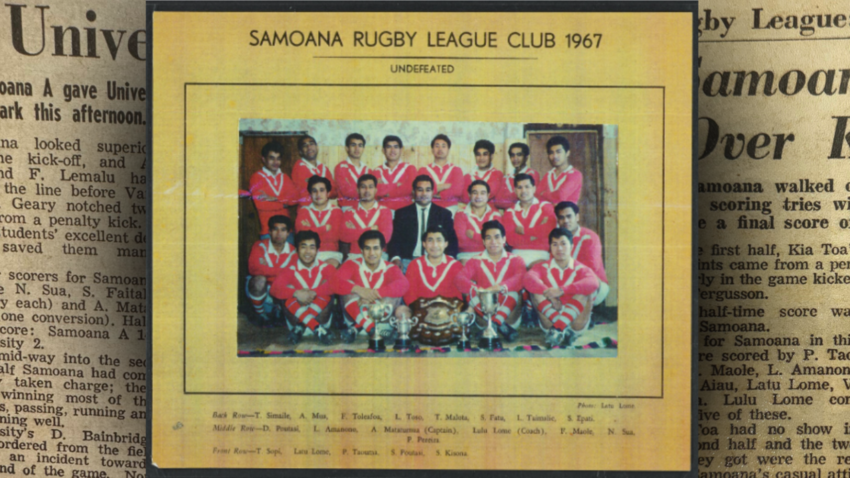
“A strong culture means a strong team”
The very first Pasifika Rugby League team in Aotearoa was the legendary ‘Samoana’ team from Dunedin in the early 1960s, now a new exhibition at the Hocken Library in Dunedin shines a light on the ragtag team and their extraordinary success on the field.
‘Samoana’ made up of scholarship students and Samoan locals, was formed in the wake of local NZ rugby teams not seeing the value of Pasifika players, and the low Pasifika playing representation across rugby and league codes.
Proving them spectacularly wrong, the newly formed team smashed a series of South Island league championships to remain undefeated in a 3 year run. In their first season, 1964, Samoana triumphed over the local competition, with 18 wins of19 games played, their success saw them dominate the sport for the next 3 years, winning local and South Island titles.
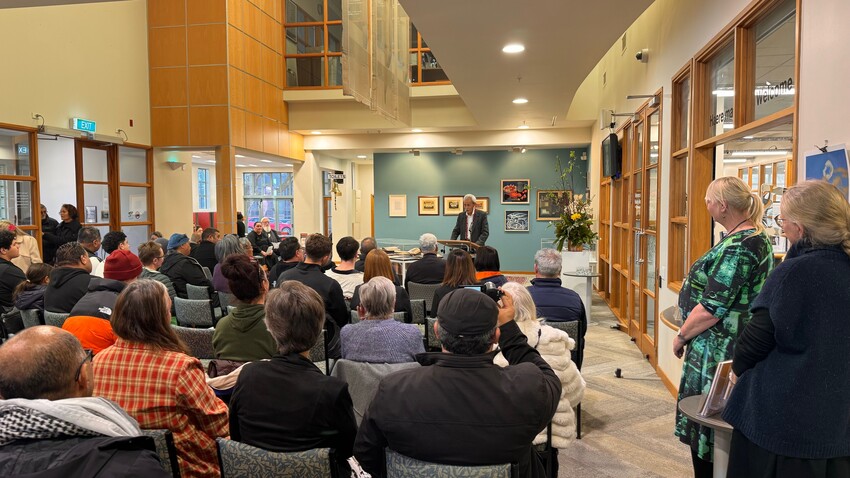
“I was pulled from rugby union to play with Samoana and I went because they were Samoan, for our first game we were called ‘Speight’ because we were so grateful that there was a hotel that supported our team and helped with our uniforms and our gear. After we won the first game I said no we have to be ‘Samoana’ Some people say we were too rough but I said that’s how the game is played! And that’s how we won the competition.
I can still always hear the call ‘come on Samoana!’ And it made us do our best all the time.”
Su’a Falaniko Su’a former ‘Samoana’ player
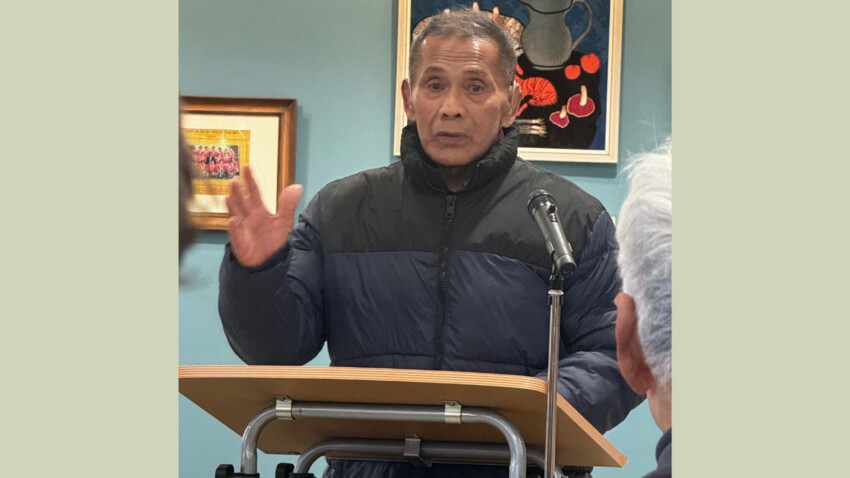
The exhibition is based on the labour of love research by Elena Lome and Aaron Taouma, who’s oral history interviews with the players are archived at the National Turnbull Library.
“I knew there would be more to it than just being champions on the field and that there are more unheard stories to be told from that time” says Elena Lome, who’s father Lulu Lome was the team's founding member and Captain for 4 years.
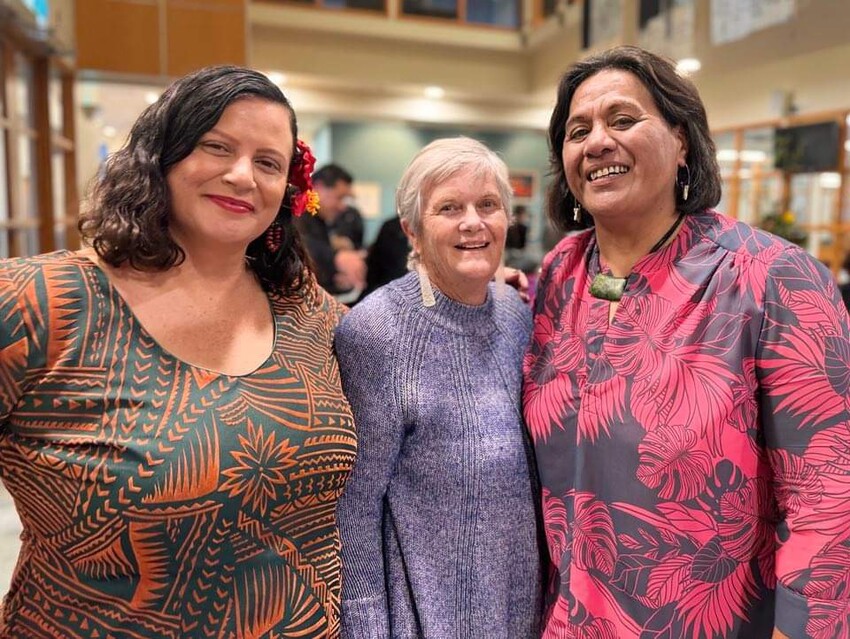
For the teams’ descendants, shining a light on this team is important in order to show how these young Samoans succeeded against all odds in this place and time.
“I want to say thank you to our matua and tama because you paved the way for us and had to endure all the racism from this society at the time, and fight to be in these spaces as Pasifika people” Elsie Taimalieutu- Freeman
Many of players in the Samoana team went on to have families that formed the basis of the Dunedin Pasifika community today, making connections in the 1960s that have lasted decades. Their children and grandchildren came to the exhibition to carry these early memories forward to new generations.
“They are the founding pacific fathers I think it’s important to know what they had to go thru there was lots of racism and challenges - not just on the field but in the works place as well” Kathryn Tofia daughter of Samoana player Pule Tofia.
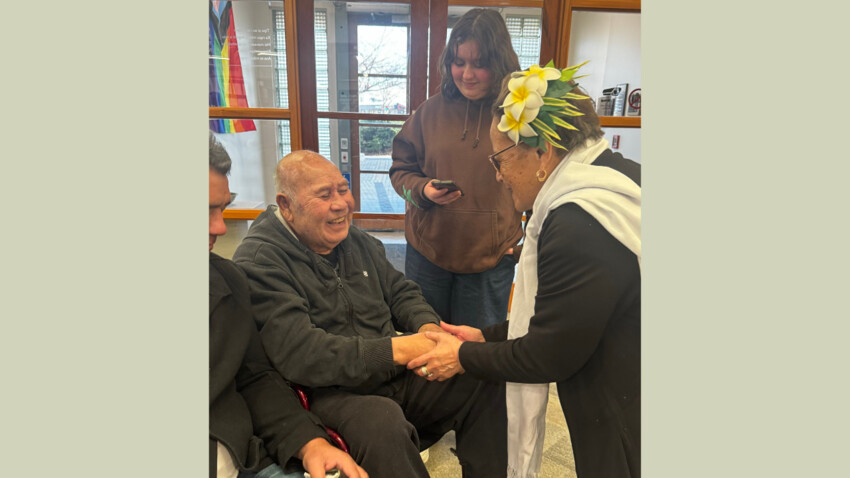
Stories of working 2 or 3 jobs to make ends meet, and send money back to Samoa were common in this time for this community of recent migrants. With this also came lots of prejudice from local kiwi workers leading to having to fight for overtime, and being kept on lower level factory positions.
Many Samoan players and supporters also came from the same village of Lefaga, which was the connecting factor to migrate to the South Island and look for work opportunities in the freezing works and industries like Donaghys Rope Manufacturers.
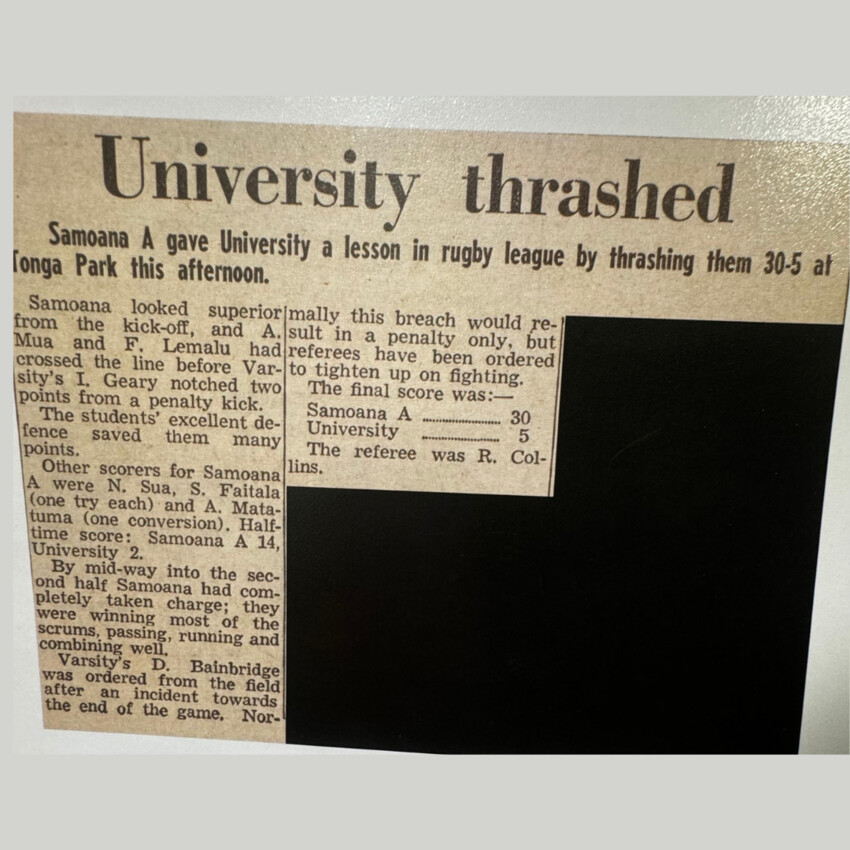
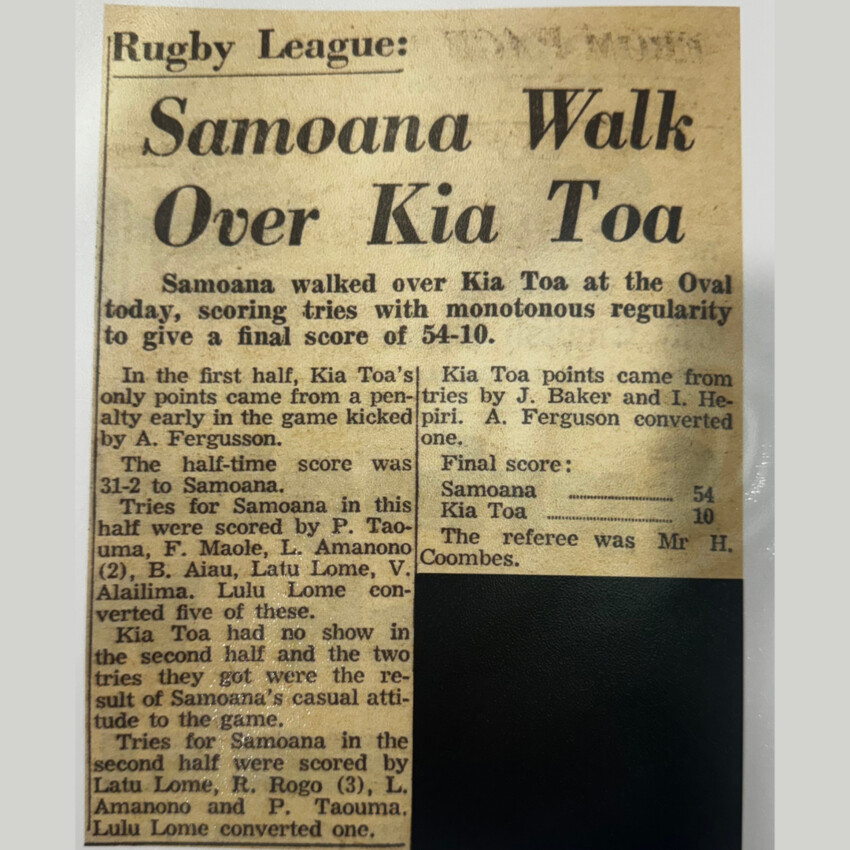
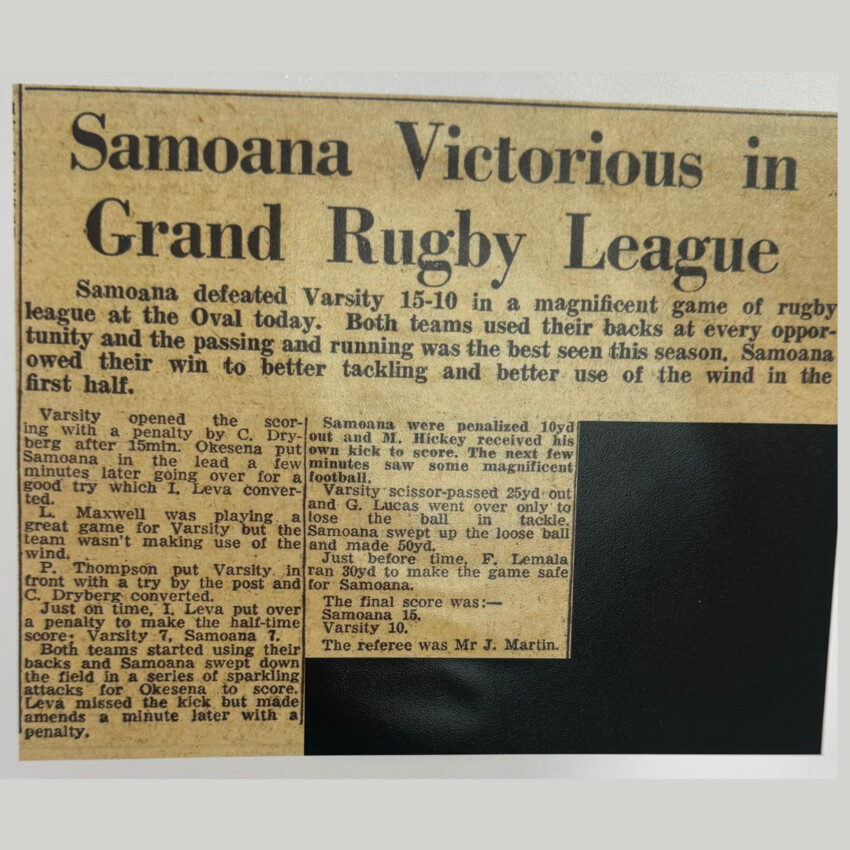
“People just didn’t want other people here taking jobs, particularly people who didn’t look or sound like them, ‘Samoana’ provided a connection for community and allowed them to be with mates, often being only place they could ‘win’ in society” Kathryn Tofia
The team’s success on the field always opened the gate for star players to then be chosen to play for the nationwide rugby union teams, that had previously not had a big representation of Pasifika players.
Samoan High Commissioner, Afamasaga Faamatala Toleafoa, who opened the exhibition was one such former ‘Samoana’ player who went on to play for Otago rugby union.
“It strengthens our community relationships to share these beautiful stories now, We need to understand our place in the world and how we got here for the next generations”
The families connected to these legends of the field have forged long standing relationships over the decades, and their children are leaders of Dunedin Samoan community groups today - forging the legacy of this time into the future.
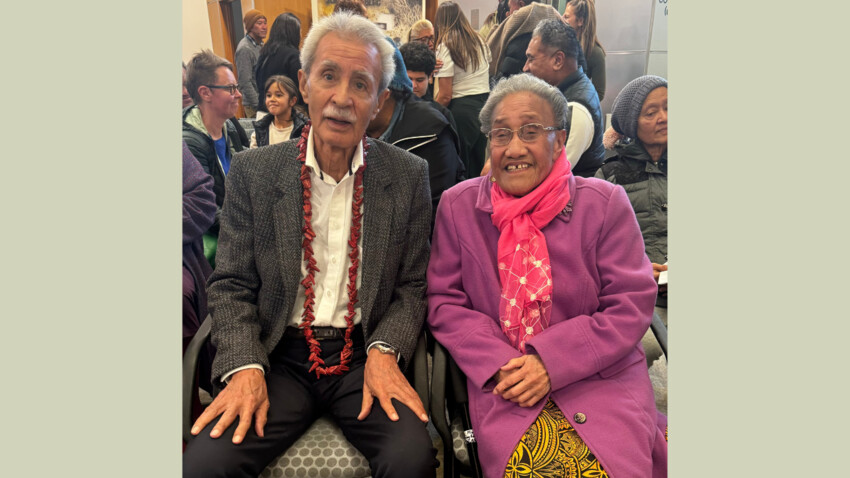
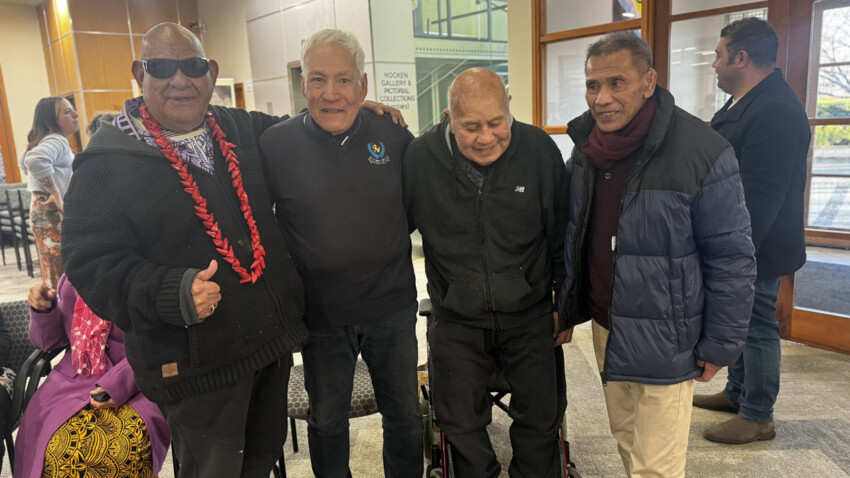
-
- by Arts & Culture Journalist Destiny Momoiseā
made with the help of Creative New Zealand
